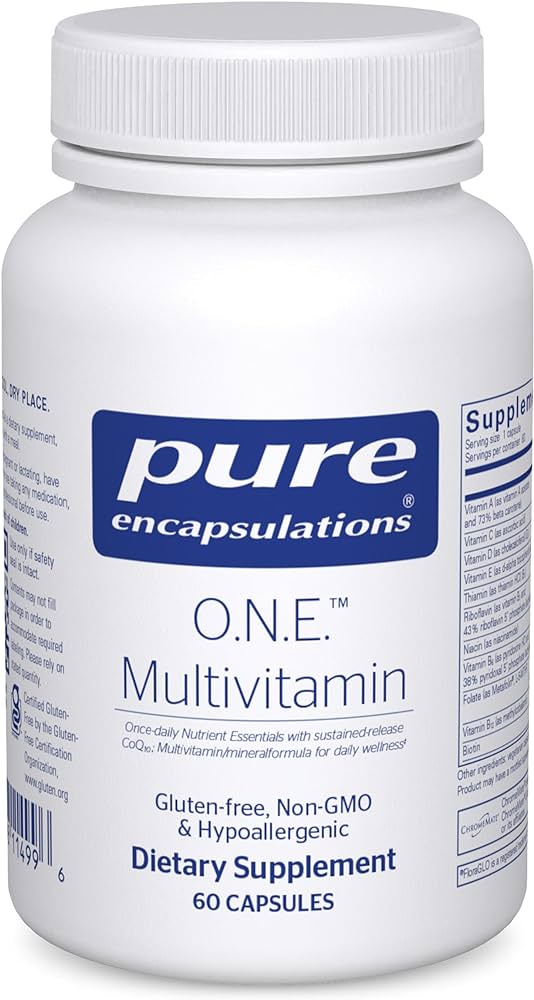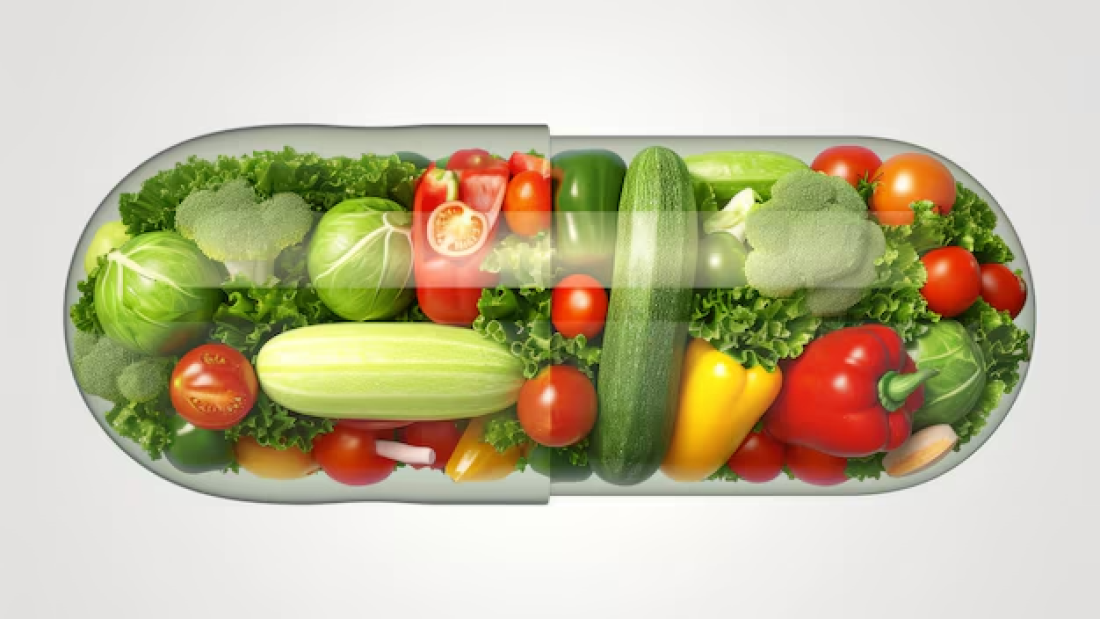If you do an internet search for “multivitamin” you will find a plethora of information out there. The information and options can be overwhelming. In this article, I’ll attempt to make it easier for you to understand what multivitamins/minerals (MVM) are and if you need supplementation.
What is a multivitamin/mineral?
Vitamins are organic, meaning they come from plants or animals. They can be categorized into:
-
- Fat soluble – Vitamins A,D,E,K
- Water soluble – Vitamins C and B-complex, these vitamins you can’t store, so will need more often.1
Minerals are inorganic, they come from the soil and water. They are absorbed by plants, then eaten by animals.
-
- Examples include calcium, iron, zinc, magnesium.
Why do we need them?
Vitamins and minerals are essential for numerous functions in the human body. Here are some examples of those functions:
-
- Immune system
- Eye health
- Blood clots/health
- Bone health
- Bowel movements
- Metabolic disorders
- Endocrine processes
- Cognitive functions
There can be numerous reasons why a person may need multivitamin/mineral supplementation, some of these can include age, sex, ethnicity, socioeconomic status, and genetic disposition. One reason I’ll expand on here is nutritional intake and the need for multivitamin supplementation.
Before the 1940’s, when people first started taking multivitamins, all vitamins and minerals were simply obtained from our food.2 However, changes in our agricultural processes decreased the nutritional value of our crops. Intensive repeated harvesting, soil contamination by pesticides, and climate change resulting in higher CO2 levels, are just some of the changes to the process.3 In a study done by the University of Texas found that “nutritional data from both 1950 and 1999 for 43 different vegetables and fruits, finding “reliable declines” in the amount of protein, calcium, phosphorus, iron, riboflavin (vitamin B2) and vitamin C over the past half century.”4 With these changes, along with an increased intake of processed foods has led to a need of vitamin and mineral supplementation.
What kinds of multivitamins and minerals do I need?
As mentioned previously, supplementation needs can vary based on your individual circumstances. Various supplements are manufactured with the intention of providing those various needs. Here are some examples of categories of multivitamins provided:
-
- Broad spectrum: contain all or most vitamins and minerals, do not exceed the Daily Values (DVs), Recommended Dietary Allowances (RDAs), or Adequate Intakes (AIs) for these nutrients.
- High potency: Higher than DV, RDS, AI
- Specialized: Athletes, weight control, immune function, pregnancy5
Looking under the broad-spectrum category, you’ll notice “Daily Value” or DV on the label. This was developed by the FDA “to help consumers compare the nutrient contents of foods and dietary supplements within the context of a total diet.”5 If you review the contents of a food label and the daily value recommendation, you can compare and see if you may need supplementation. Most people do not get these daily values from their food alone, and therefore require supplementation. Here is a table of Daily Values and “the recommended amounts of nutrients to consume or not to exceed each day.”5
| Nutrient | Current Daily Value |
| Added sugars | 50g |
| Biotin | 30mcg |
| Calcium | 1300mg |
| Chloride | 2300mg |
| Choline | 550mg |
| Cholesterol | 300mg |
| Chromium | 35mcg |
| Copper | 0.9mg |
| Dietary Fiber | 28g |
| Fat | 78g |
| Folate/Folic Acid | 400mcg DFE |
| Iodine | 150mcg |
| Iron | 18mg |
| Magnesium | 420mg |
| Manganese | 2.3mg |
| Molybdenum | 45mcg |
| Niacin | 16mg NE |
| Pantothenic Acid | 5mg |
| Phosphorus | 1250mg |
| Potassium | 4700mg |
| Protein | 50g |
| Riboflavin | 1.3mg |
| Saturated fat | 20g |
| Selenium | 55mcg |
| Sodium | 2300mg |
| Thiamin | 1.2mg |
| Total carbohydrate | 275g |
| Vitamin A | 900mcg RAE |
| Vitamin B6 | 1.7mg |
| Vitamin B12 | 2.4mcg |
| Vitamin C | 90mg |
| Vitamin D | 20mcg |
| Vitamin E | 15mg alpha-tocopherol |
| Vitamin K | 120mcg |
| Zinc | 11mg |
Units of Measure Key:
-
- g = grams
- mg = milligrams
- mcg = micrograms
- mg NE = milligrams of niacin equivalents
- mcg DFE = micrograms of dietary folate equivalents
- mcg RAE = micrograms of retinol activity equivalents
- IU = international units
Where can I get multivitamins?
As I mentioned earlier, you can search the internet and find numerous websites selling multivitamin supplements. However, there are some important items to consider when choosing your supplements. The first is supplement regulation in the U.S. “The FDA does NOT have the authority to approve dietary supplements for safety and effectiveness, or to approve their labeling, before the supplements are sold to the public.”6 It is up to the companies to make sure the products meet safety standards. However, the FDA does inspect manufacturing facilities, reviews labels, and monitors adverse events.6 Therefore there is a large range of quality of products out there.
Here are some additional things to keep in mind:
-
- Always take what is recommended on the label
- A MVM product is not a substitute for food
- Remember to keep an eye out for false claims6
Here at Prescott Compounding Pharmacy, we are very proud of the companies we partner with to offer supplements. One company I’ll mention is Pure Encapsulation, which offers the highest quality ingredients without many allergens and fillers. The methods on how they achieve this quality includes:
-
- Raw materials are tested for identity, potency, microbial contaminants, heavy metals (including mercury, arsenic, cadmium, and lead), 32 solvent residues, and allergens depending on risk.
- Herbal ingredients are tested for 70 different pesticide compounds.
- Essential fatty acids and fish/krill oils are tested for dioxins, furans, PCBs, and other agents.
- Suppliers undergo rigorous qualification procedures and audits.
- Pure Encapsulations is NSF-GMP registered in the U.S., GMP certified in Canada, and exceeds the standards of the United States Pharmacopeia (USP) for supplement manufacturing.7
One particular product I’ll highlight is O.N.E Multivitamin, it contains most of the vitamins and minerals mentioned in the article all within a single capsule that is taken once daily.

Conclusion
Talk to your health care professional about interactions with medications, lab test, surgeries, and other adverse reactions before deciding what supplement is the right for you. We here at Prescott Compounding Pharmacy, are always here to help you with your supplemental questions and options.
By Jimmy Stevens, Pharm. D.
References:
- https://extension.colostate.edu/topic-areas/nutrition-food-safety-health/water-soluble-vitamins-b-complex-and-vitamin-c-9-312/#:~:text=B-complex vitamins and vitamin,during food storage and preparation.
- https://ods.od.nih.gov/factsheets/MVMS-HealthProfessional/#en1
- https://www.ifm.org/news-insights/food-for-health-considering-the-nutrient-density-of-food-crops/
- https://www.scientificamerican.com/article/soil-depletion-and-nutrition-loss/
- https://www.fda.gov/food/nutrition-facts-label/daily-value-nutrition-and-supplement-facts-labels
- https://www.fda.gov/consumers/consumer-updates/fda-101-dietary-supplements
- https://www.pureencapsulationspro.com/o-n-e-multivitamin.html?_br_psugg_q=one multivitamin&size=120 capsules
